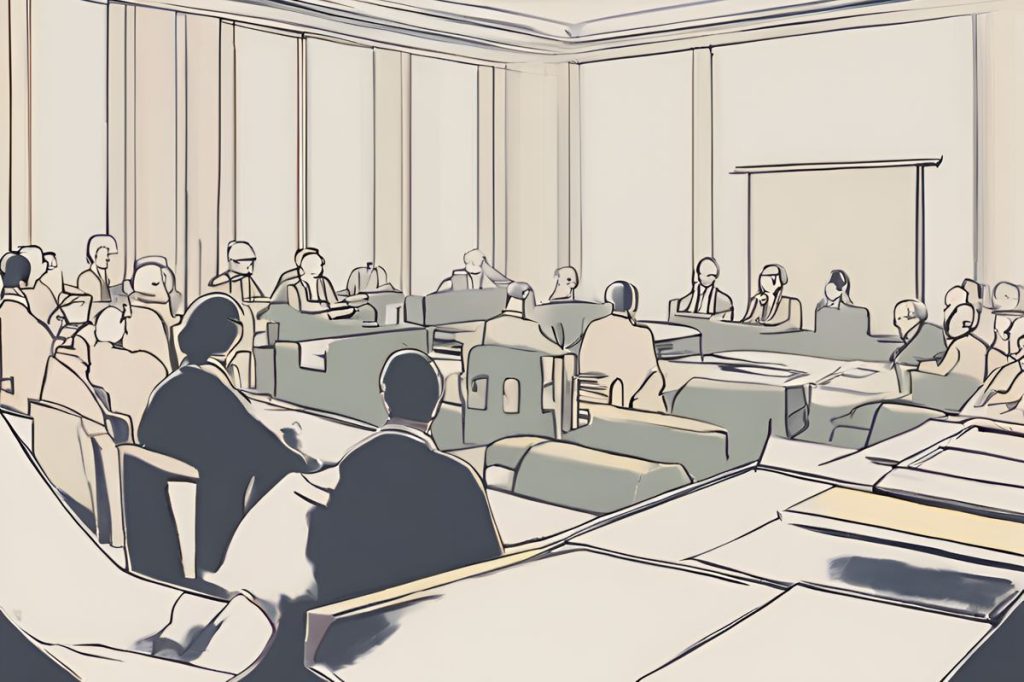The Cyprus LNG project is embroiled in controversy as questions arise about EU procurement law violations and potential loss of funding. Former President Nicos Anastasiades, energy ministers Giorgos Lakkotrypis and Natasa Pilides, and Finance Minister Harris Georgiades may face scrutiny in the European public prosecutor’s investigation. Delays, questionable contracts, and financial decisions have cast a shadow over the project, impacting the future of energy governance in Cyprus and the broader European energy landscape.
What controversies surround Cyprus’s LNG project, and who is implicated?
Cyprus’s LNG project is mired in controversy due to potential EU procurement law violations and the risk of losing EU funds. Ex-President Nicos Anastasiades, former energy ministers Giorgos Lakkotrypis and Natasa Pilides, and former Finance Minister Harris Georgiades may face questioning as the European public prosecutor investigates. Concerns include questionable contract signings and project delays.
The Saga of the LNG Project
The Mediterranean island of Cyprus has been caught in a whirlwind of controversy over the handling of its liquefied natural gas (LNG) project. With a probe by the European public prosecutor’s office underway, the island’s officials are under scrutiny. Ex-President Nicos Anastasiades, along with former energy ministers Giorgos Lakkotrypis and Natasa Pilides, and former Finance Minister Harris Georgiades, are among the names mentioned as possibly facing questioning.
The story gained momentum following a special report by the auditor-general in January, which cited questionable decisions, including the signing of a contract with a Chinese-led consortium on December 13, 2019. Despite early warnings from a meeting in November 2019 about potential EU procurement law violations and the risk of losing significant EU funds, the contract proceeded.
Revelations from the Auditor-General’s Report
At a pivotal meeting in November 2019, doubts about the legitimacy of the bid evaluation process were acknowledged. It was noted that Cyprus might not secure the €101 million in EU grants due to these concerns. Nevertheless, in less than a month, the contract was finalized. Later disclosures showed the finance ministry’s insistence on moving forward with the project, even at the expense of the EU grant.
Delays plagued the project. The construction, originally set for completion by September 27, 2022, was pushed to July 31, 2023. This delay was flagged by the auditor-general and became a subject of debate in the Cypriot parliament. Lakkotrypis defended the contract’s legality, citing that abandoning the tender might risk the project’s financial backing. He expressed regret over the absence of meeting minutes that could have provided clarity on the discussions that took place.
Project Costs and Implications
Amid the investigation, questions also arose regarding the project’s cost-effectiveness, particularly concerning the purchase and conversion of an LNG carrier into a floating storage and regasification unit (Fsru). The need for an LNG infrastructure is critical for Cyprus to diversify its energy sources and reduce reliance on imported oil. However, the financial decisions surrounding this project have raised eyebrows, considering the substantial investment and the strategic importance of energy in the region.
As Cyprus navigates through the complexities of this LNG project, the focus remains on ensuring accountability and transparency. The outcome of the European public prosecutor’s office investigation will likely shape the future of energy governance on the island. With the Mediterranean region’s geostrategic energy potential, the stakes are high not only for Cyprus but for the broader dynamics of European energy security.
What controversies surround Cyprus’s LNG project, and who is implicated?
Cyprus’s LNG project is mired in controversy due to potential EU procurement law violations and the risk of losing EU funds. Ex-President Nicos Anastasiades, former energy ministers Giorgos Lakkotrypis and Natasa Pilides, and former Finance Minister Harris Georgiades may face questioning as the European public prosecutor investigates. Concerns include questionable contract signings and project delays.
What revelations came from the Auditor-General’s report regarding the Cyprus LNG project?
The Auditor-General’s report highlighted doubts about the bid evaluation process and the potential loss of €101 million in EU grants. Despite warnings about EU procurement law violations, a contract with a Chinese-led consortium was signed in December 2019. Delays in project completion and financial decisions that risked the EU grant were also noted.
What are the implications of the delays and financial decisions on Cyprus’s LNG project?
Delays in the LNG project pushed the original completion date from September 2022 to July 2023 and have become a subject of debate in the Cypriot parliament. Questions have been raised about the cost-effectiveness of purchasing and converting an LNG carrier into a floating storage and regasification unit (Fsru). The financial decisions surrounding the project have raised concerns given the strategic importance of energy in the region.
How will the outcomes of the European public prosecutor’s investigation impact the future of energy governance in Cyprus and Europe?
The investigation by the European public prosecutor’s office will likely shape the future of energy governance in Cyprus. The focus remains on ensuring accountability and transparency in the project. With the region’s geostrategic energy potential at stake, the results of the investigation will have implications not only for Cyprus but also for broader European energy security dynamics.

